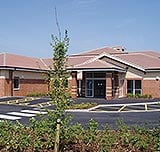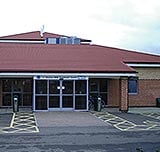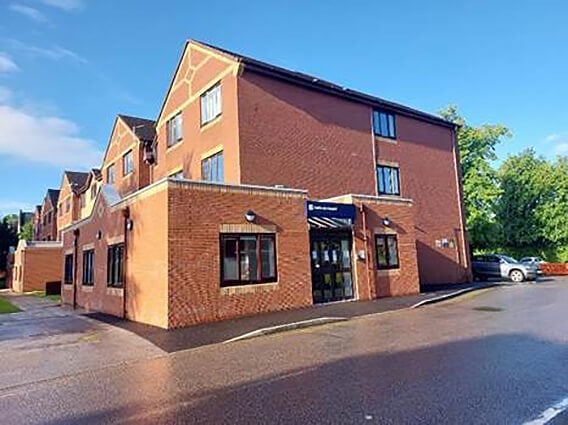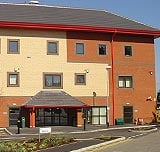
Podiatric surgery is the surgical treatment of your foot and its related structures including the bones, joints, and soft tissues.
It is usually recommended if other non-surgical treatments, such as physiotherapy and rest, have not relieved your pain, or if your foot is affected by a deformity.
Conditions treated in podiatry surgery include issues caused by bunions, arthritis, toe deformities and inflammation of your foot tissues.
A podiatric surgeon is a foot and ankle doctor. They assess your foot injury or condition and give you an expert opinion. Podiatrists have specialised knowledge of the structures of your feet and in treating foot pain and problems.
They will physically inspect your foot and ankle and assess your gait. This gives them the required information to diagnose certain conditions such as bunions and hammer toes.
To help with their diagnosis, they may refer you for an X-ray to look at your bones and joints or an MRI to get detailed images of your tendons, ligaments, and muscles. These tests can help your podiatrist determine the cause of your symptoms and guide your treatment.
Foot symptoms are sometimes a sign of a more serious problem in another part of your body; a podiatrist can identify this.
Your podiatric surgeon can advise and recommend non-surgical treatment as well as surgery for your foot problem. They will fully explain their recommendations in your consultation.
There are a number of foot conditions that podiatrists can treat and may require podiatric surgery. These include:
There are many reasons to see a podiatric surgeon. The most common reason is for foot pain such as a sharp pain in your heel, pain or difficulty putting your foot down or ongoing pain.
Other common concerns to see a podiatric surgeon include:
The costs of podiatric surgery vary from patient to patient. They depend on your foot condition, whether investigative tests are required, the best way to manage and treat your foot issue, and your chosen Ramsay hospital.
You will be advised of your appointment costs when you book your podiatry consultation. Any further costs for appointments, diagnostic tests and non-surgical or surgical treatment will be discussed and confirmed following your consultation.
Podiatric surgery costs are usually covered by medical insurance. We advise you to check with your insurance provider for their written confirmation before your appointment and when you have your treatment plan costs.
If you are paying for yourself, we offer a variety of payment options including interest-free finance.
The recovery process after a podiatric surgery will depend on your foot condition, its severity and the recommended treatment.
For example, if you have bunion surgery your recovery may be longer than surgery for an ingrown toenail.
Bunion surgery recovery can involve initially staying off your feet as much as possible for at least two weeks, staying off work and not driving for six to 12 weeks and avoiding sports for up to six months.
Ingrown toenail surgery takes four to six weeks to heal if part of your nail is removed and 10 to 12 weeks if your whole nail is removed. However, you’ll be able to walk and get back to your usual activities during this time whilst avoiding swimming and sporting activities that may injure your operated toe.
Podiatric surgery at Ramsay Health Care offers you fast and convenient appointments with one of our expert podiatric surgeons.
With extensive training in foot surgery and a qualification in podiatric surgical practice, our podiatric surgeons diagnose and treat the whole spectrum of foot and ankle conditions. Some of our podiatrists specialise in specific areas of work such as diabetes, rheumatology, and sports injuries.
Your podiatric surgeon will discuss with you the best treatment for your foot problem. If they recommend surgery, they will talk to you about what it involves and how you can prepare for it, whilst also answering any questions you have. They work closely with the physiotherapy team who will offer their full support.
Our podiatric surgeons use the latest treatments and technology. Procedures are typically carried out on a day case basis so you can recover comfortably at home.
















We are delighted to announce the appointment of Miss Sabeen Akhtar as the new Group Medical Director at Ramsay Health Care UK.
Springfield, part of Ramsay Health Care UK, is delighted to announce that men suffering from a benign enlarged prostate (Benign Prostatic Hyperplasia) will be able to receive robotic Aquablation Therapy.
Ramsay Health Care UK joined Leeds Pride to celebrate love, unity, and inclusion. Our growing culture of allyship ensures colleagues and patients feel seen, valued, and celebrated.
The information, including but not limited to, text, graphics, images and other material, contained on this website is for educational purposes only and not intended to be a substitute for medical advice, diagnosis or treatment. Always seek the advice of your physician or other qualified health care provider with any questions you may have regarding a medical condition or treatment.
No warranty or guarantee is made that the information contained on this website is complete or accurate in every respect. The testimonials, statements, and opinions presented on our website are applicable to the individuals depicted. Results will vary and may not be representative of the experience of others. Prior patient results are only provided as examples of what may be achievable. Individual results will vary and no guarantee is stated or implied by any photo use or any statement on this website.
Ramsay is a trusted provider of plastic or reconstructive surgery treatments as a part of our wrap-around holistic patient care. Our personal, friendly and professional team are here to support you throughout to ensure the best possible care. All procedures we perform are clinically justified.
*Acceptance is subject to status. Terms and conditions apply. Ramsay Health Care UK Operations Limited is authorised and regulated by the Financial Conduct authority under FRN 702886. Ramsay Healthcare UK Operations is acting as a credit broker to Chrysalis Finance Limited.
Ramsay Health Care UK is not currently recruiting for any roles based outside of England. If you are interested in applying for a role with Ramsay Health Care UK, please note that all available positions are advertised exclusively on our official website: https://www.ramsayhealth.co.uk/careers. Be cautious of individuals or organisations that approach you directly for remotely-based roles. Always verify the authenticity of the job offer and be careful with whom you share your personal information. For more information and advice on employment fraud, please visit: https://www.ramsayhealth.co.uk/careers/recruitment-fraud